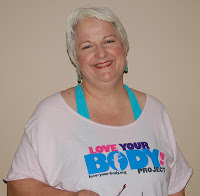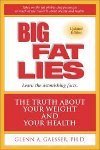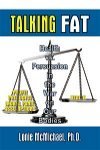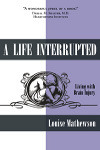Healing the World One Book at a Time – Prejudice in Publishing
 We start Pearlsong Press Week with a guest post from Pearlsong Press publisher Peggy Elam. Peggy is a licensed psychologist, healer, journalist, poet, artist and founder of Pearlsong Press. She lives in and works out of Nashville, TN.
We start Pearlsong Press Week with a guest post from Pearlsong Press publisher Peggy Elam. Peggy is a licensed psychologist, healer, journalist, poet, artist and founder of Pearlsong Press. She lives in and works out of Nashville, TN.Comment on this post for a chance to win a copy of the Pearlsong Press ebook of your choice. A winner will be chosen randomly from comments made on this post. This offer is valid until midnight EST, Tuesday June 19, 2012.

Pearlsong Press website: http://www.pearlsong.comPearlsong Press blog: http://www.pearlsongpress.com
Healing the World One Book at a Time – Prejudice in Publishingby Peggy Elam
When Glenn A. Gaesser was trying to get his first book published in the early 1990s, the main thing prospective agents and publishers wanted to know was whether he was fat.
 Big Fat Lies: The Truth About Your Weight and Your Health
Big Fat Lies: The Truth About Your Weight and Your Health
 documented the problems with focusing on weight as a proxy for health, including the unscientific way in which an insurance company actuary created the first height-weight tables. Its author (Gaesser) is a college professor and researcher in exercise and health promotion with a Ph.D. and M.A. from U.C. Berkeley—certainly well-qualified to report and discuss research on weight and health. But Gaesser’s credentials would have meant nothing to those agents and publishers if he were fat.
documented the problems with focusing on weight as a proxy for health, including the unscientific way in which an insurance company actuary created the first height-weight tables. Its author (Gaesser) is a college professor and researcher in exercise and health promotion with a Ph.D. and M.A. from U.C. Berkeley—certainly well-qualified to report and discuss research on weight and health. But Gaesser’s credentials would have meant nothing to those agents and publishers if he were fat.He wasn’t fat, though, and thus he was eventually offered a book contract—as long as he added a weight-loss-oriented section, which the publisher thought would make the book more popular. He agreed to do so (even though the weight-loss focus was contraindicated by the rest of the book) in order to get the information in the first two-thirds of the book, his original manuscript, published. I’ve recommended Big Fat Lies
 to many people since it was first published in 1996, but I always tell them to ignore that last section.
to many people since it was first published in 1996, but I always tell them to ignore that last section.It was several years after the publication of Big Fat Lies
 that I heard Gaesser tell how he was screened for body acceptability by the publishing industry. And I was incensed.
that I heard Gaesser tell how he was screened for body acceptability by the publishing industry. And I was incensed. I was (and still am) a clinical psychologist, but before earning my own Ph.D. and M.S. I had majored in English and journalism and worked a few years as a newspaper reporter, editor and columnist. I’d had my own struggles with weight, body image and eating, and was drawn to graduate study in psychology and training as a psychotherapist in part by interest in the relationship between dieting and eating disorders, as well as the way body and beauty standards bind and deaden women’s (and increasingly men’s) life energy.
I already knew there was a dearth of positive portrayals of fat people—especially fat women—in contemporary literature. Now it seemed that mainstream publishing culture deemed fat bodies unacceptable as authors as well, if they dared to write nonfiction discouraging weight prejudice. (A delightful exception was the 1998 publication of Marilyn Wann’s FAT!SO? : Because You Don't Have to Apologize for Your Size
 by the independent publisher Ten Speed Press. But Ten Speed Press is now owned by Random House.)
by the independent publisher Ten Speed Press. But Ten Speed Press is now owned by Random House.)After learning of the prejudice against fat nonfiction authors, I saw a way to combine my expertise and skills by creating a publishing company that would depict fat people positively as well as provide a possible outlet for authors of any size whose works challenge the weightist status quo. And Pearlsong Press was born.
 Our inaugural book was Pat Ballard’scollection of rubenesque short stories, Dangerous Curves Ahead: Short Stories
Our inaugural book was Pat Ballard’scollection of rubenesque short stories, Dangerous Curves Ahead: Short Stories , which debuted in trade paperback and ebook form in May 2004. We then published romance novels Pat had previously self-published (Wanted: One Groom
, which debuted in trade paperback and ebook form in May 2004. We then published romance novels Pat had previously self-published (Wanted: One Groom , Nobody's Perfect
, Nobody's Perfect , His Brother's Child
, His Brother's Child and A Worthy Heir
and A Worthy Heir ). Pat’s books were soon followed by Pattie Thomas and Carl Wilkerson’ssociological memoir
Taking Up Space: How Eating Well and Exercising Regularly Changed My Life
). Pat’s books were soon followed by Pattie Thomas and Carl Wilkerson’ssociological memoir
Taking Up Space: How Eating Well and Exercising Regularly Changed My Life
 (a bit of a culture jam, that subtitle, since the change was for the worse) and Ellen Frankel’s Beyond Measure: A Memoir About Short Stature and Inner Growth
(a bit of a culture jam, that subtitle, since the change was for the worse) and Ellen Frankel’s Beyond Measure: A Memoir About Short Stature and Inner Growth .
.Although it might seem odd—or frivolous—for the first books we published to be romance novels, I was and still am appreciative of the way in which fiction can fuel societal change. I have been touched by fans who have read Pat Ballard’s novels and written her that the books provided their first encounter with the notion that they could be happy and loved—not to mention healthy—in bodies they had long felt unacceptably fat.



Pearlsong published its 32nd book this month: ExtraOrdinary: An End of Life Story Without End
 by Michele Tamaren and Michael Wittner, which garnered a glowing review from Publisher’s Weekly. August 2012 will see publication of Lonie McMichael, Ph.D’s
Talking Fat: Health vs. Persuasion in theWar on Our Bodies
, which Marilyn Wann calls a “brilliant analysis” that “will be endlessly useful to me as a fat activist and a person who wants to live healthily and happily in my very own body.”
by Michele Tamaren and Michael Wittner, which garnered a glowing review from Publisher’s Weekly. August 2012 will see publication of Lonie McMichael, Ph.D’s
Talking Fat: Health vs. Persuasion in theWar on Our Bodies
, which Marilyn Wann calls a “brilliant analysis” that “will be endlessly useful to me as a fat activist and a person who wants to live healthily and happily in my very own body.” In October we’ll publish Louise Mathewson’spoetry collection A Life Interrupted:Living With Brain Injury , which the journal therapy community is already buzzing about. And in November the world can take a break from holiday-eating-related fat panic to step into the hearty, guilt-free world of Tracey L. Thompson’s novel Fatropolis.
More books are under contract and in the pipeline, including the rest of Lynne Murray’s series featuring Josephine Fuller, the sleuth of size who doesn’t apologize, and a new novel by Judy Bagshaw.
As we move through the rest of 2012 and beyond, please join us in celebrating size (and age and spiritual) diversity and taking a larger perspective on life, the universe, and everything.
Published on June 11, 2012 06:00
No comments have been added yet.



